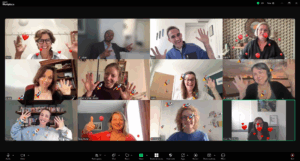Powering Psychological Safety: Unleashing the Potential of Team Coaching in Leadership
Psychological safety is a shared belief in a team or organisation that it is safe to take interpersonal risks without the fear of negative consequences. It is an essential aspect of a healthy work environment where individuals feel comfortable being themselves, expressing their ideas and opinions, and taking risks without the fear of judgement, rejection, or retaliation.
In psychologically safe environments, team members feel accepted, respected, and valued for their contributions, regardless of their rank or position. They believe that their voice matters, and they are encouraged to speak up, share their thoughts, ask questions, and challenge the status quo without the fear of being ridiculed or punished.
As a leader, adopting the skills, tools and principles used in Team Coaching methodology can play a crucial role in creating psychological safety within teams. Here’s why:
-
Facilitating Open Communication:
Psychological safety is fostered when team members feel comfortable expressing their thoughts, opinions, and concerns without fear of judgment or reprisal. Team coaching tools and skills help establish an environment where open and honest communication is encouraged. Coaches or leaders who use coaching methodology can facilitate discussions, encourage active listening, and promote a non-judgmental atmosphere, allowing team members to freely express themselves.
-
Building Trust:
Trust is an essential component of psychological safety. Team coaching methodology is centred around building trust among team members by fostering strong relationships, promoting understanding, and addressing conflicts effectively. Coaches and leaders trained in team coaching can facilitate trust-building activities, provide feedback and support, and mediate difficult conversations, creating a foundation of trust within the team.
-
Encouraging Collaboration:
Psychological safety is closely linked to collaboration. When team members feel psychologically safe, they are more likely to contribute their ideas and actively participate in team activities. Team coaching can help foster a collaborative mindset by promoting inclusivity, encouraging diverse perspectives, and facilitating teamwork. Coaches and leaders using coaching inspired strategies can guide team members in developing effective collaboration skills and creating an environment where everyone’s contributions are valued.
-
Managing Differences and Conflict:
In any team, differences in opinions, approaches, and personalities are bound to arise. Skilful team coaching helps teams navigate these differences and manage conflicts constructively. Coaches and leaders can apply the tools and techniques acquired in their training for resolving conflicts, facilitating respectful discussions, and helping team members understand and appreciate diverse viewpoints. By addressing conflicts in a supportive and constructive manner, team coaching contributes to psychological safety.
-
Promoting Continuous Learning:
Psychological safety is closely connected to a learning mindset, where individuals feel safe to take risks, experiment, and learn from failures. Team coaching encourages a culture of continuous learning by fostering a growth mindset and supporting individual and team development. Leaders and Coaches can promote learning opportunities, provide feedback and guidance, and create an environment where mistakes are seen as opportunities for growth rather than reasons for blame.
Overall, team coaching plays a vital and relevant role in creating psychological safety within teams. Applying the methodology of team coaching fosters open communication, builds trust, encourages collaboration, manages differences, and promotes continuous learning. By creating an environment where team members feel safe to express themselves and take risks, team coaching contributes to higher team performance, innovation, and overall well-being.
CRR UK is the UK provider of Organisation and Relationship Systems Coaching, or ORSC. This is a revolutionary team coaching methodology that centres around relationships. CRR has been delivering team and systemic coach training since 2001. We were the only ICF Accredited team and systemic coach training programme until 5 years ago. Our participants are looking for an established and recognised team coaching provider, which we confidently can say is exactly what we are!
You can join us for one of our introductory modules by registering here!
The 2023 schedule is:
- Fundamentals 8 | 9 September 2023 Virtual
- Fundamentals 12 | 13 October 2023 Virtual
- Fundamentals 26 | 27 October 2023 In-Person, London
- ORS@Work 17 | 18 November 2023 Virtual






